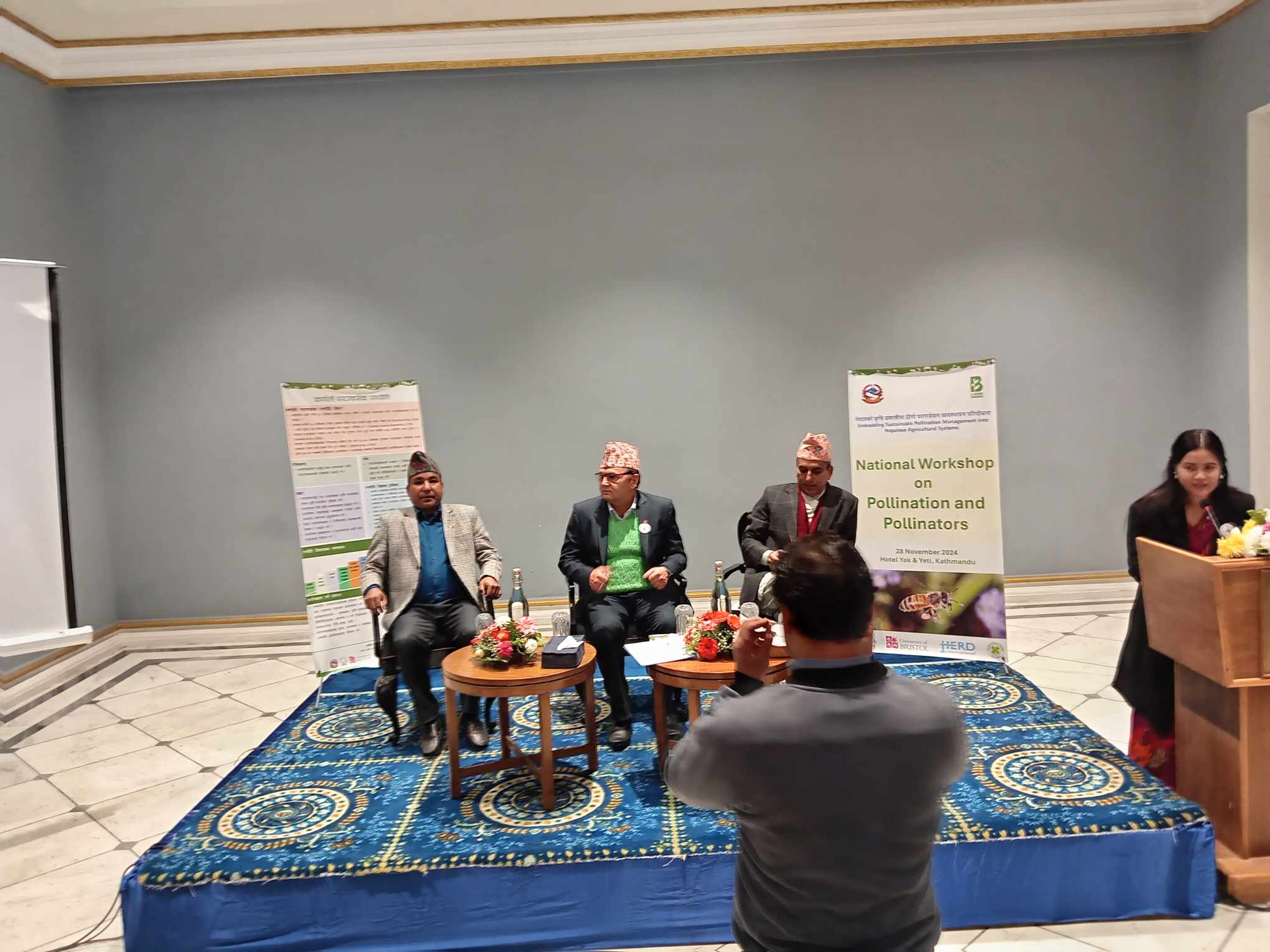Kathmandu. Stakeholders have raised serious concerns about the decline in pollination in Karnali Province, citing significant adverse impacts on agriculture.
The issue was discussed at the National Workshop on Pollination and Pollinators organized jointly by the Karnali Ministry of Land Management, Agriculture, and Cooperatives, and Leeward, emphasizing the critical role of pollination in Nepal’s agriculture sector.
The Executive Director of Leeward, Bharat Bhandari, highlighted the alarming decrease in pollination, attributing it to climate change, intensive farming practices, excessive pesticide use, and deforestation. He stressed the urgent need for a sustainable approach to managing pollinators, including wild bees, which play a crucial role in maintaining ecological balance. Bhandari called for immediate collaborative efforts to conserve pollinators, referencing international treaties on pollinator conservation.
Rajendra Prasad Mishra, Secretary of the Ministry of Agriculture and Livestock Development, acknowledged the challenges posed by declining pollination and emphasized the need for strategic interventions to bolster agriculture and livestock in Karnali Province. He advocated for prioritizing agriculture and ensuring that projects reach grassroots levels for meaningful impact.
Dr. Doj Raj Khanal, Executive Director of the Nepal Agricultural Research Council (NARC), pointed out that the excessive use of chemical fertilizers and pesticides is a significant contributor to the decline in pollination.
To address the issue, Karnali Province is working on strategies aimed at halting the decline in pollination while promoting ecologically sensitive agricultural practices. Initiatives are underway to establish the province as a biosphere reserve, balancing agriculture and ecological sustainability. Effective implementation of these projects is expected to improve the province’s agricultural productivity and environmental health.


